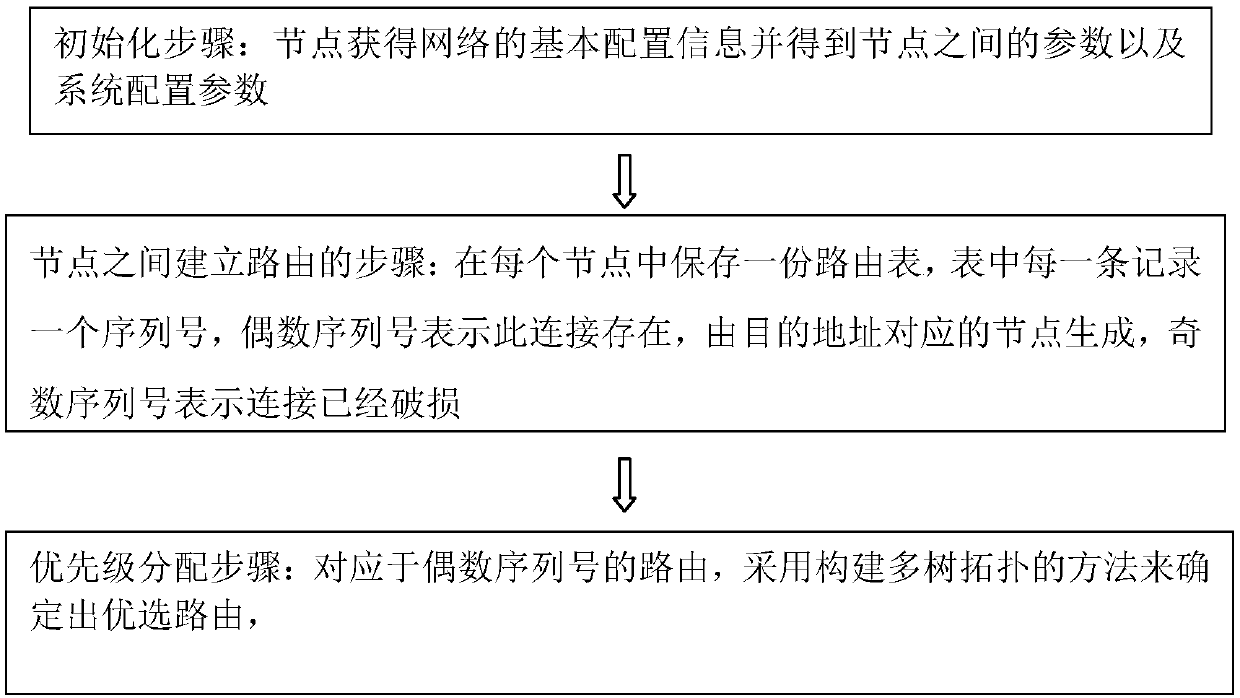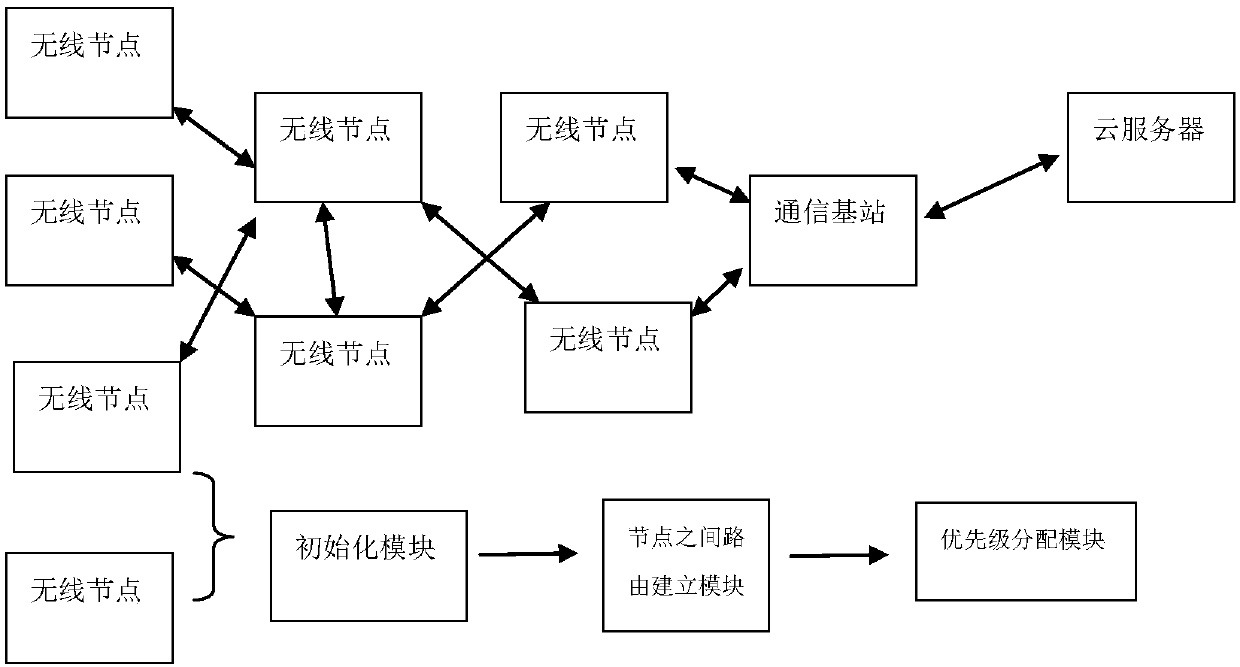Ad-hoc network communication methods and ad-hoc network communication system
A communication method and ad-hoc network technology, applied in the field of communication, can solve the problems of small serial number, energy consumption and network bandwidth, scattered distribution, etc.
- Summary
- Abstract
- Description
- Claims
- Application Information
AI Technical Summary
Problems solved by technology
Method used
Image
Examples
no. 1 example
[0031] Such as figure 1 As shown, an ad hoc network communication method is applied to a wireless ad hoc network communication system. The wireless ad hoc network communication system includes a plurality of wireless nodes for networking, a communication base station, and a cloud server. Among the wireless nodes When a wireless node is within the communication radius range R of the communication base station, the wireless node within the communication radius range R transmits the information wirelessly to the cloud server through the communication base station, and returns the information through the cloud server The information is transmitted between wireless nodes to realize ad hoc network communication. The wireless nodes use the improved Destination Station Numbering Distance Vector DSDV protocol for networking. The main improvement is that the traditional destination station numbering distance vector DSDV protocol is combined to construct The multi-tree topology is used f...
no. 2 example
[0058] Second embodiment: the method for constructing a multi-tree topology can be replaced by: on the basis of the traditional destination station number distance vector DSDV protocol, a HELLO handshake network is established between each node, and each node connected to the router node in the HELLO handshake network network Add a dormant state to each link, select a shared spanning tree on a given network topology, and the links on it are always in the working state to ensure network connectivity, and other links that are not on the spanning tree will not Entering the dormant state, each router saves the shortest path routing table of the entire network path and the routing table of the corresponding spanning tree. For a data packet, the ingress router determines that the data packet adopts one of the paths according to the current link load, and adds a label identification. The non-ingress router selects the corresponding routing table for forwarding according to the label. ...
no. 3 example
[0059] The third embodiment: certainly, except adopting method of the present invention to construct multi-tree topology, also can adopt Scribe (Scribe) method to construct multi-tree topology, adopt Scribe (Scribe) method to construct multi-tree topology Corresponding improvements need to be made, that is, adding uplink bandwidth information in the Scribe method. The characteristics of the multi-tree topology constructed according to the Scribe method are: first, if a node acts as an intermediate node in a subtree, then in Other subtrees can only serve as leaf nodes; secondly, the node ID (identification) is used as input, and the specific position of the node can be obtained by using the Pastry (Pastry) algorithm analysis.
[0060] Specifically, there are five nodes in the system, node A, node B, node C, node D, and node E, and the uplink bandwidths are 256K bits, 512K bits, 1M bits, 2M bits, and 4M bits respectively. Currently, a single substream requires The uplink bandwid...
PUM
 Login to View More
Login to View More Abstract
Description
Claims
Application Information
 Login to View More
Login to View More - R&D
- Intellectual Property
- Life Sciences
- Materials
- Tech Scout
- Unparalleled Data Quality
- Higher Quality Content
- 60% Fewer Hallucinations
Browse by: Latest US Patents, China's latest patents, Technical Efficacy Thesaurus, Application Domain, Technology Topic, Popular Technical Reports.
© 2025 PatSnap. All rights reserved.Legal|Privacy policy|Modern Slavery Act Transparency Statement|Sitemap|About US| Contact US: help@patsnap.com


